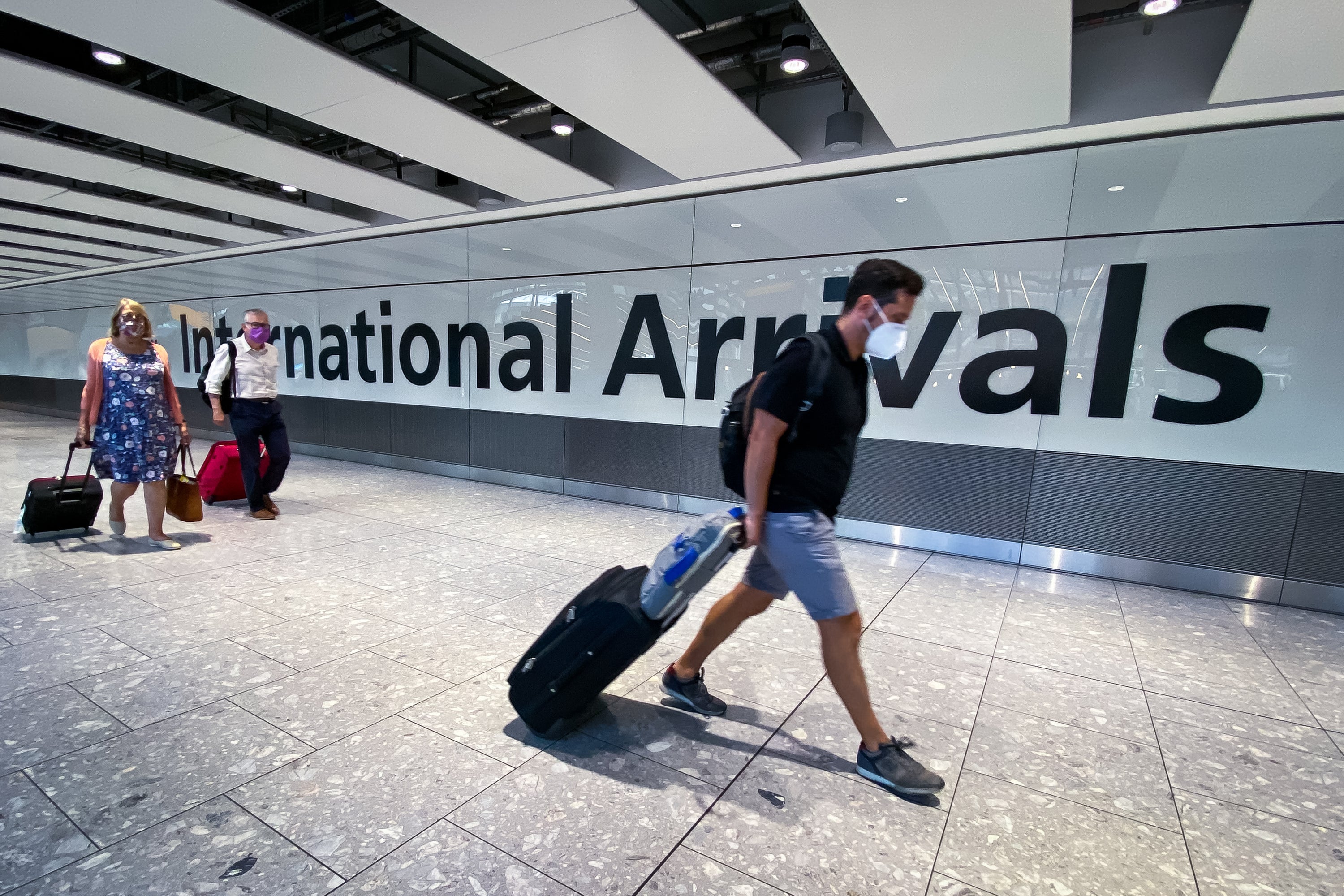New Covid travel rules ‘completely ineffective’
From 4am on Tuesday fully-vaccinated people entering the UK will be required to self-isolate until they receive a negative result from a PCR test.

Your support helps us to tell the story
From reproductive rights to climate change to Big Tech, The Independent is on the ground when the story is developing. Whether it's investigating the financials of Elon Musk's pro-Trump PAC or producing our latest documentary, 'The A Word', which shines a light on the American women fighting for reproductive rights, we know how important it is to parse out the facts from the messaging.
At such a critical moment in US history, we need reporters on the ground. Your donation allows us to keep sending journalists to speak to both sides of the story.
The Independent is trusted by Americans across the entire political spectrum. And unlike many other quality news outlets, we choose not to lock Americans out of our reporting and analysis with paywalls. We believe quality journalism should be available to everyone, paid for by those who can afford it.
Your support makes all the difference.Tougher Covid-19 restrictions on international travel have been “completely ineffective in the past”, according to the former boss of British Airways’ parent company.
Ex-IAG chief executive Willie Walsh described the reintroduction of tighter quarantine and testing regulations due to concern over the Omicron variant of coronavirus as a “knee-jerk decision” which imposes “huge hardship” on travellers.
From 4am on Tuesday fully-vaccinated people entering the UK will be required to self-isolate until they receive a negative result from a PCR test taken on the second day after they arrive.
The tests must be bought from the private sector, typically costing around £55.
Previously fully-vaccinated travellers were only required to take a cheaper lateral flow test, and did not need to self-isolate unless they received a positive result.
Sensible testing regimes which have been proven to be effective could be introduced
People who are unvaccinated will continue to need one pre-departure test and two post-arrival PCR tests, and must quarantine for 10 days.
Ten African countries have been added to the UK’s red list since Friday.
Arrivals from those locations must stay in a quarantine hotel for 10 days at a cost of £2,285 for solo travellers.
Mr Walsh, who is currently director-general of airline trade body the International Air Transport Association told BBC Radio 4’s Today programme: “I’m very disappointed to see this knee-jerk reaction by governments to the latest development.
“It’s clear that these measures have been completely ineffective in the past but impose huge hardship on people who are trying to connect with families and friends, and clearly massive financial damage to the tourism and airline industry.”
Mr Walsh said the failure of similar requirements to prevent a second coronavirus wave in the UK after being implemented in May last year demonstrates they “do not have any long-term benefits” and are “not the answer”.
He continued: “I think sensible testing regimes which have been proven to be effective could be introduced which would enable people to continue travelling in a safe environment.
“It’s disappointing that the Government does not reflect on the significant data that they have available.”
Professor Jim Naismith, director of the Rosalind Franklin Institute and professor of structural biology at the University of Oxford, said travel rules are “all or nothing with respect to Covid-19 variants”.
He went on: “Rapidly spreading variants will move faster than surveillance systems.
“Stopping travel to one country whilst allowing it from others has not been particularly effective because the virus is able to take multiple transit routes.
“Similarly, discriminating between who is allowed to travel into a country on citizenship grounds has not worked well, since the virus is not interested in passports.”
Tim Alderslade, chief executive of trade association Airlines UK, warned that many people due to arrive in the UK in the coming days will “struggle” to arrange PCR tests at short notice.
He claimed it would be “an appropriate gesture” for the Government to provide the tests free of charge to travellers, which could be done “at no excessive cost to the Exchequer”.
The World Tourism Organisation, the United Nations’ tourism body, has warned that global revenue from international tourism this year will be less than half the pre-pandemic level of 2019.